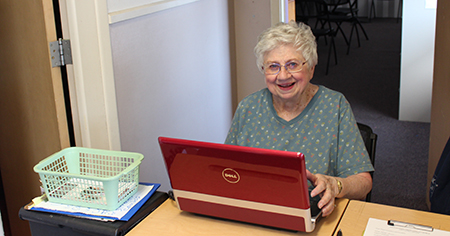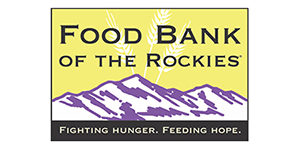PRESS RELEASE – CULTURALLY RESPONSIVE FOOD PANTRIES
 In August 2020, The Food Bank of the Rockies (FBR) launched their culturally responsive food initiative, which aims to overcome barriers experience by clients for different cultural backgrounds. These barriers include:
In August 2020, The Food Bank of the Rockies (FBR) launched their culturally responsive food initiative, which aims to overcome barriers experience by clients for different cultural backgrounds. These barriers include:
- Diverse food preference,
- Language barriers or uncertainty about eligibility, and
- Not feeling comfortable when visiting pantries that do not understand their culture.
The FISH of Westminster food pantry at Westminster Presbyterian Church (Westy Pres) was recently selected as a partner in this initiative. As a partner pantry, we attended diversity and best practices training, developed a plan unique to the Westy Pres pantry and our clients, and were awarded a grant to expand our food offering and address language barriers we experience when working with our diverse clientele.
Our clients include those of Latinx, Asian, Ukrainian/Russian, Arabic, and Western European heritage – each with many different cultural traditions dependent upon their country of origin. The largest groups are those of Latinx and Western European heritage. We reached out to friends and partners within the community, as well as FBR, to identify more diverse foods that could be offered to all of these groups.
We created 4 major food components to better respond to our clients’ needs that we believe we will be able to fund over the long-term:
- Provide on request up to 3 items each visit of frequently requested but more expensive items such as canned chilies, dried fruits, oatmeal, Spam, and cooking oil.
- Expand our offering of herbs/spices to include more diverse offerings such as chili powder, cumin, ginger, and oregano.
- Host a pantry supply event in October, where our clients will be able to select up to 5 pantry items such as all-purpose flour, rice flour, masa, lard, honey, and sesame oil.
- In addition to our traditional December Holiday Food Bags with sides appropriate to a ham or turkey meal, we will offer, as an alternative, a Tamale Holiday Food Bag for those clients whose holiday tradition includes making tamales.
We also have plans to address language barriers including English/Spanish signage, English/Spanish web site, English/Spanish/Ukrainian handouts, and a hand-held translator to support communicating with our clients in their first language.
We are so thankful for the opportunity given to us through this program to provide every client with foods that are familiar, nutritious, and comforting.

 We are a 501(c)3 non-profit made up of two food pantries with a focus on improving the quality of life for our neighbors in Westminster. We provide emergency food to hungry seniors, adults, and children in Westminster, Colorado.
Contact
Paul Langley
plangley12672@aol.com
We are a 501(c)3 non-profit made up of two food pantries with a focus on improving the quality of life for our neighbors in Westminster. We provide emergency food to hungry seniors, adults, and children in Westminster, Colorado.
Contact
Paul Langley
plangley12672@aol.com
 Food Pantry Hours
M/W/Th, 2:45 - 3:15
Tues, 5:30-6:00.
Location
3990 West 74th Avenue
Westminster, Colorado 80030
(303) 429-8508
Food Pantry Hours
M/W/Th, 2:45 - 3:15
Tues, 5:30-6:00.
Location
3990 West 74th Avenue
Westminster, Colorado 80030
(303) 429-8508